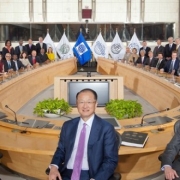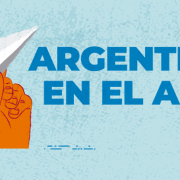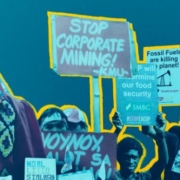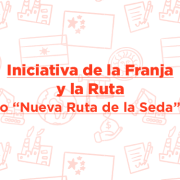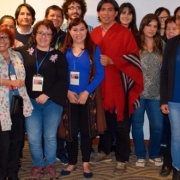We send recommendations regarding the possible dilution of the IDB’s socioenvironmental
In the framework of the public consultation process on the review of IDB environmental and social safeguards policies, together with a group of more than 50 civil society organizations in the region, we made comments and observations on the draft of the new Policy Framework. Environmental and Social, through a document that was sent to the Bank on Monday, April 20.
“Below, we offer a google translate version of the original article in Spanish. This translation may not be accurate but serves as a general presentation of the article. For more accurate information, please switch to the Spanish version of the website. In addition, feel free to directly contact in English the person mentioned at the bottom of this article with regards to this topic”.
The proposal of this policy differs from the previous ones, since this draft Framework seeks to integrate environmental and social policies into a single policy. Thus, the draft of the MPAS is structured in two parts. In the first, it presents the Policy Statement that addresses the IDB’s responsibilities and roles and relevant issues such as human rights, gender equality, non-discrimination and inclusion, rights of Indigenous Peoples, Afro-descendants and other traditional peoples, participation of interested parties. , reduction of greenhouse gas emissions and protection of Biodiversity, and natural resources and ecosystem.
In the second part of the draft, the ten environmental and social performance standards that must be met by the borrowers throughout the project life cycle are detailed. In addition, for the Bank, the Standards will serve as guides for risk assessment, classification, due diligence, monitoring and management.
The 10 Performance Standards are as follows:
- Assessment and management of environmental and social risks and impacts.
- Work and working conditions.
- Efficiency in the use of resources and prevention of contamination.
- Community health and safety.
- Land acquisition and resettlement.
- Conservation of biodiversity and sustainable management of natural resources.
- Indigenous villages.
- Cultural heritage.
- Gender equality.
- Stakeholder Participation and Disclosure of Information.
Following the Bank’s Public Consultation Plan, the public consultation process on the MPAS began in January through face-to-face consultations scheduled by the IDB in different parts of the world. It was not only possible to participate through face-to-face consultations, virtual consultations were also enabled through the sending of comments through the Bank’s website or through an e-mail address. This first phase of virtual consultations ended on April 20.
It was in this framework that more than 50 civil society organizations that we have been working collaboratively and jointly since last year, prepared and sent to the IDB a document with a large number of comments and observations on the draft of the new MPAS.
The document, with more than 80 pages, is structured in general comments and specific comments on each performance standard found in the framework, and not only identifies in detail each of the problematic aspects that we identified in the draft, but also provides particular recommendations to correct them. In this way, it seeks to avoid the evident dilution of environmental, social and human rights standards that would entail the approval of the draft of the new MPAS as it stands. The document was sent on Monday, April 20, the date on which the first phase of virtual public consultations on the draft of the new MPAS ended.
At the same time, from Fundeps, and with the support and collaboration of a group of civil society organizations specialized in gender issues, we sent particular comments regarding the draft MPAS from a gender perspective. In this document, we raise the need for the IDB not only to avoid weakening its current Gender Policy, considered one of the most advanced in the matter in relation to the rest of the IDB-related Financial Institutions, but also to decide to put itself decisively at the forefront In this matter, for which it must necessarily carry out a process of mainstreaming the gender perspective in all its financed policies and projects (See document).
Which are the next steps? The IDB will prepare a second draft of the MPAS in which it must incorporate the recommendations and observations received from civil society during the consultation process. However, previous experience in recent consultation processes carried out by the IDB shows that the Bank is unlikely to incorporate and take into account the most important recommendations provided by civil society. We hope that in this case this trend will be reversed.
When the Executive Board approves the second draft, the IDB will publish it on its website and begin the second stage of the consultation process, which will be virtual and for a period of 30 days. Once this period has ended, it will produce the final version of the Framework and a document with the response to the comments received. The approved MPAS would take effect in January 2021.
From civil society, we hope that the IDB will take into consideration the comments and observations that have been made not only to avoid dilution of the institution’s social and environmental standards, which have been built together with civil society in recent decades. , but also to take advantage of the opportunity to advance and strengthen them. Something that becomes even more necessary in a regional context marked by the weakening of the national socio-environmental framework in most countries.
More information
- Public consultations on the IDB’s new environmental and social policy begin – Fundeps
- Draft Environmental and Social Policy Framework (MPAS) – IDB
- We participate in consultations of the new IDB Environmental and Social Policy Framework – Fundeps
- MPAS Policy Profile – IDB
- Additional Information on the Draft Framework for Environmental and Social Policy (MPAS)
- Evaluation of IDB Environmental and Social Standards – Office of Evaluation and Oversight
- Recommendations and comments on the draft of the Social and Environmental Policy Framework (MPAS) proposed by the IDB – Civil Society Organizations
Contact
Gonzalo Roza, gon.roza@fundeps.org


